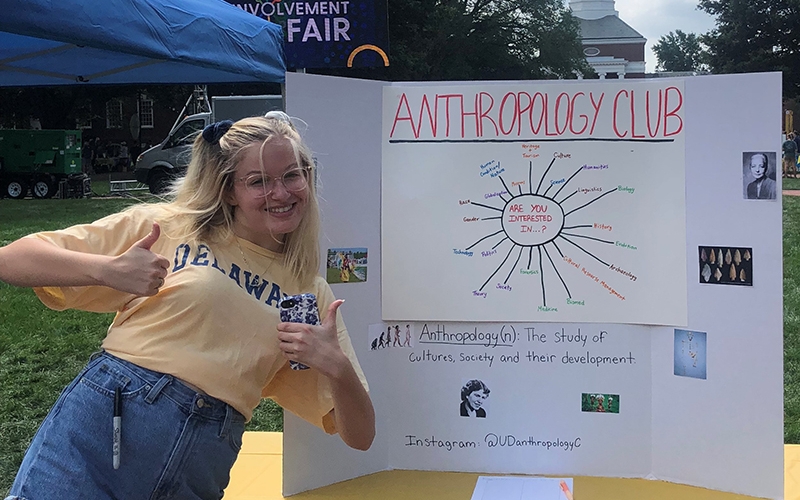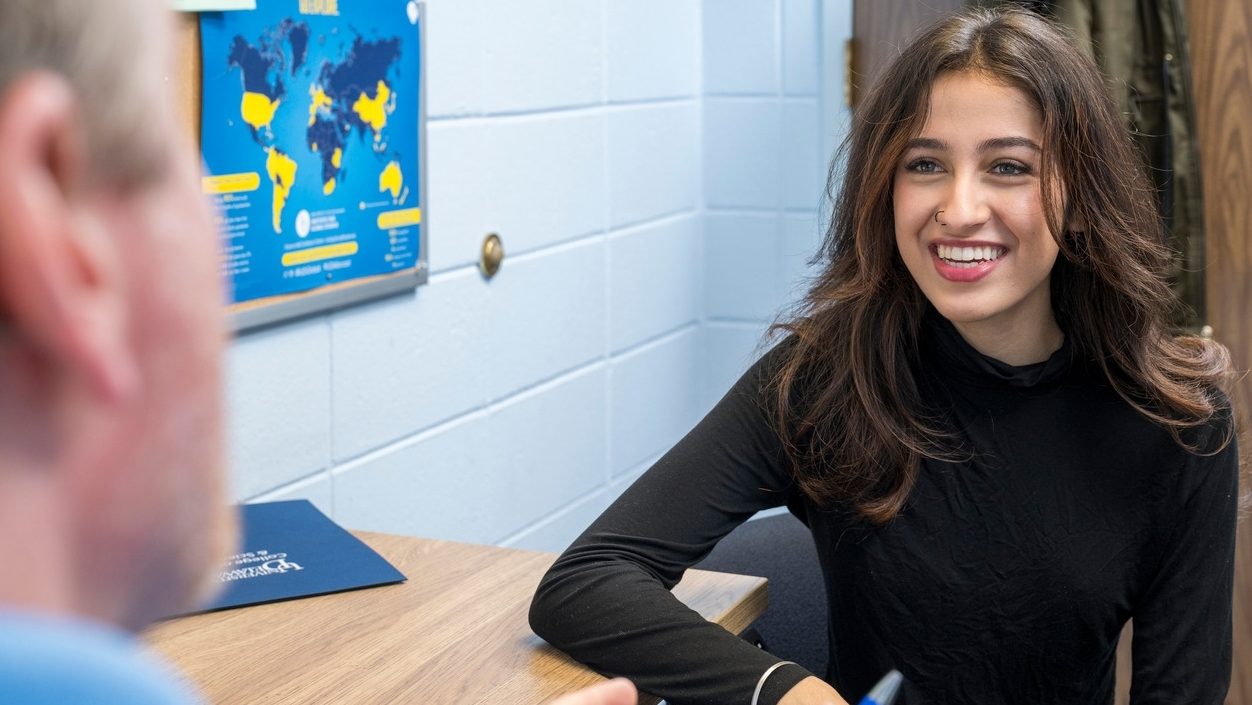
Undergraduate Programs

Welcome to the Department of Anthropology
The Department of Anthropology at the University of Delaware offers broad training in the subfields of anthropology, including cultural anthropology, biological anthropology, archaeology, and applied anthropology. Our courses explore human diversity and apply critical knowledge to understand the problems of a complex world. They focus on world areas or themes, such as biological, medical, and public health issues; disasters and humanitarianism; the impacts of globalization; art and material culture; and archeology.
Concentrations
Evaluate the social, historical, environmental, and biological variables of human health. Interpret data and case studies. Compare ideas about health and medical and healing approaches around the world. Discover anthropological ideas and research related to health professions.
Explore research on precarity, insecurity, conflict, and violence across local and global contexts. Evaluate variables and forces contributing to global and local insecurities. Evaluate responses to acute and chronic insecurity. Analyze approaches to human rights and precarity. Discover diverse ideas about rights, justice, and power.
Discover material culture (tools, technologies, art objects, media forms, the built environment). Describe the human relationship to material culture through time and across societies. Analyze and interpret anthropological research on material culture. Evaluate how material culture is linked to structures of power, processes of oppression and forms of resistance across societies.
Our Minors
Fostering a learning community
The Department of Anthropology is known for providing its undergraduates with a true learning community, where excellent facilities are combined with close personal contact between students and faculty that creates a true learning community for students.
- Our programs emphasize skill development with a focus on writing, critical thinking, analysis, and interpretation.
- Students take advantage of many opportunities to work closely with faculty and to participate in small seminar classes. Some students serve as undergraduate teaching assistants for faculty.
- Courses are enriched by work with departmental collections, visits to museums and special exhibits in nearby sites and cities, and local fieldwork and community engagement opportunities.
- Students have opportunities to conduct original laboratory, ethnographic and archaeological research, which can lead to conference presentations and professional publications.
- Our students participate in research alongside faculty and have traveled to research sites in Latin America, Southeast Asia among many other locations. Travel funds are awarded to support student research.
- Students in the Anthropology Club deepen their engagement with peers and faculty who share common interests. The club sponsors activities and talks and allows students to travel with fellow anthropologists to conferences and research sites.
The strong sense of community between students and faculty is a hallmark of our department and enhances the humanism and scientific approaches that define the field of anthropology.






